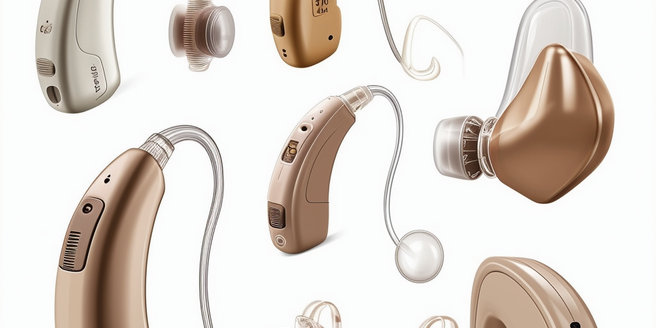
Understanding Medicare Coverage for Hearing Services
Medicare provides essential healthcare coverage for millions of Americans, but its coverage for hearing services can be quite limited. Original Medicare (Part A and Part B) does not typically cover routine hearing exams, hearing aids, or exams for fitting hearing aids. However, Medicare Part B may cover diagnostic hearing and balance exams if your doctor orders these tests to determine if medical treatment is needed. It’s important to explore all available options when considering your healthcare needs. For instance, investigating supplemental insurance could be worthwhile. It is essential to understand that while Medicare Advantage plans (Part C) may offer additional hearing benefits, these plans vary widely, and beneficiaries should review the specific coverage details of their plan.
Types of Hearing Services Covered by Medicare
Although Original Medicare does not cover routine hearing exams or hearing aids, it does cover specific hearing-related services deemed medically necessary. For instance, diagnostic hearing exams are covered if ordered by a doctor to diagnose and treat a medical condition. This can include balance exams related to hearing issues. It’s also worth noting that certain audiological evaluation procedures are eligible for coverage. Moreover, there are specific procedures and treatments covered under certain conditions. Medicare Advantage plans, which are offered by private insurers, can provide additional benefits that include routine hearing exams and hearing aids. It is crucial to compare different plans and understand their offerings to maximize your benefits related to hearing services.
Steps to Obtain Hearing Services Through Medicare
To obtain hearing services through Medicare, start by consulting with your primary care physician. They can provide a referral to a specialist if diagnostic tests are necessary. It’s important to be proactive and address any hearing concerns you have. Early intervention can prevent further complications and improve quality of life. Being well-informed can significantly ease the process. If you have a Medicare Advantage plan, check with your plan provider to understand the specific coverage and preferred providers. Schedule your appointment with a Medicare-approved audiologist or ENT specialist. For those without Medicare Advantage, consider additional coverage or discount programs for hearing aids. Understanding the steps and ensuring the services are approved and covered by Medicare can help reduce out-of-pocket costs.
Costs and Reimbursements for Hearing Services
Understanding the costs and potential reimbursements for hearing services under Medicare is crucial for effective financial planning. For diagnostic hearing exams covered by Medicare Part B, patients typically pay 20% of the Medicare-approved amount after meeting the Part B deductible. For those with Medicare Advantage plans, the costs can vary depending on the plan’s specific benefits and network rules. It’s important to contact your provider for detailed cost information. Make sure to review all aspects of your plan to maximize your benefits. Additionally, ask your provider about any potential discounts or promotions. Remember that hearing aids and related services are usually out-of-pocket expenses unless covered by a supplemental plan or Medicare Advantage with included hearing benefits.
Navigating Limitations and Finding Additional Resources
Navigating the limitations of Medicare coverage for hearing services can be challenging. While Original Medicare has significant gaps in coverage, beneficiaries can explore Medicare Advantage plans that offer expanded benefits, including hearing aids. Additionally, numerous state and local programs provide assistance for hearing services and devices. Some employers also offer plans that may include hearing coverage. Non-profit organizations and patient advocacy groups can also offer resources and support. There are educational workshops and seminars available that can help individuals understand their options better. For those needing financial aid, look for grants or low-cost options from hearing aid manufacturers and audiologists. Taking advantage of these resources can help bridge the coverage gap and improve access to essential hearing care.
